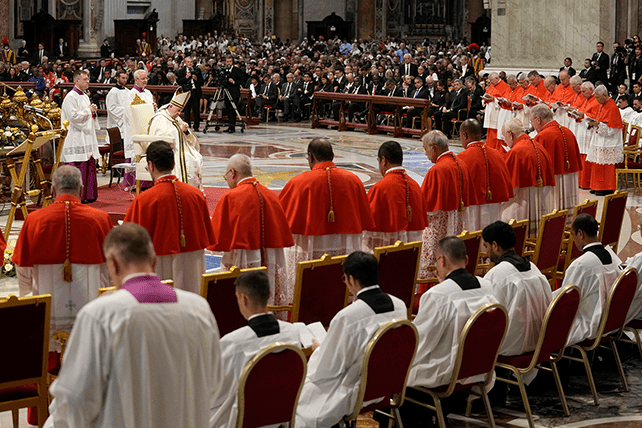“I think it’s important to have this dialogue, this agreement,” he said. “I think this agreement is moving too slowly; we need to move faster and have more, deeper dialogue,” he said in answer to journalists’ questions. At the center of the deal, he tried to make clear, are the local community of believers, not the geopolitical concerns about establishing formal diplomatic relations or putting a Vatican embassy in Beijing, though, he said, “that may come in the future.”
Such talk is a marked change from Zen, who was fined by the Chinese authorities last year for his alleged support of pro-democracy protesters in the diocese.
Francis has been criticized recently over his attempts to maintain dialogue with Russia and individual Russians even as the Ukraine invasion has redrawn international ties. He has defended his stance, saying that the church rightly puts a premium on saving lives and establishing peace. Some of those he will elevate to cardinal on Saturday echo his approach.
“Sometimes it’s a question of choosing the lesser of two evils,” said Bishop Agostino Marchetto, who has decades of experience as Vatican representative in Madagascar, Tanzania and Belarus. While in Africa, he said, he would often advise the Vatican to support the government that ensured the well-being of most people, even if it had an authoritarian bent, over a democratic government filled with unrest, hunger and suffering.
Marchetto, 83, is too old to vote at the next conclave and he has dedicated the latter part of his life to studying the legacy of the Second Vatican Council. His recent book is aptly titled simply “Dialogue.” With some 170 active conflicts in the world, he said, one can’t give up on dialogue and the search for peace.
“A just peace. We must always add that adjective,” he said, pointing to the Holy See’s attempt to mediate the war between Russia and Ukraine. “We must always show the other that we are interested in seeking peace.”
This article originally appeared here.

